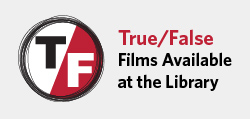I may not have finished these books (or these), but I got far enough to know that they’ll be worth the read! Sometimes, reading is a project that you see through to completion. And sometimes, reading is a buffet, or a garden: That looks good! That seems interesting! I want to try it. I wonder how this one tastes, compared to that one — I wonder what would happen if we put them together! I want to leave a little bit of this one here, for the next person to enjoy. I can’t wait to try this again, when I’m ready.
“My Bright Abyss: Meditations of a Modern Believer” by Christian Wiman
Why I checked it out: I had recently read some excellent Buddhist memoirs, and decided to explore Christian memoirs next. This book by Christian Wiman was recommended to me by a dear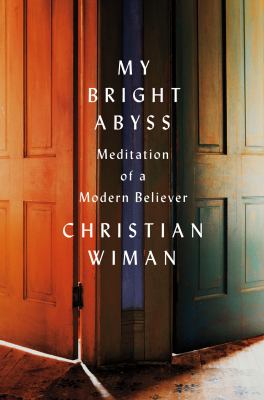 friend, who described it as “careful, sincere and humble” — three qualities I value in nonfiction writing.
friend, who described it as “careful, sincere and humble” — three qualities I value in nonfiction writing.
Wiman is a poet, and he writes like one, even in prose. “My Bright Abyss” is no treatise — the writing is tangled and honest. Have a taste: “It God is a salve applied to unbearable psychic wounds, or a dream figure conjured out of memory and mortal terror, or an escape from a life that has become either too appalling or too banal to bear, then I have to admit: it is not working for me.”
What stuck: To love, in Wiman’s words, is to see the “spark of divinity” in another person. And loneliness, he says, is not emptiness, but rather an expansive and active condition in which God, and love, can be. These radical redefinitions of love and loneliness — two impossible and frequently painful mysteries so core to the human experience — astonished me.
I should mention that Wiman wrote this book amidst treatment for a rare and unpredictable cancer. And while “My Bright Abyss” is not necessarily a memoir about illness and recovery, it is certainly written in the voice of someone who has suffered, and who has reckoned with death in a profound way.
Why I returned it: My pursuit of meaning was outpacing my actual comprehension. It was time to slow down and contemplate what I had already read. Also, “My Bright Abyss” had the strange effect of compelling me towards other books — maybe because of Wiman’s tendency to quote and reference inspiring works.
Recommended for: Anyone who is drawn to spiritual books, but not necessarily to spiritual texts. Anyone who is or has ever been very sick; who has come back from hopelessness.
“The Ethnic Cleansing of Palestine” by Ilan Pappé
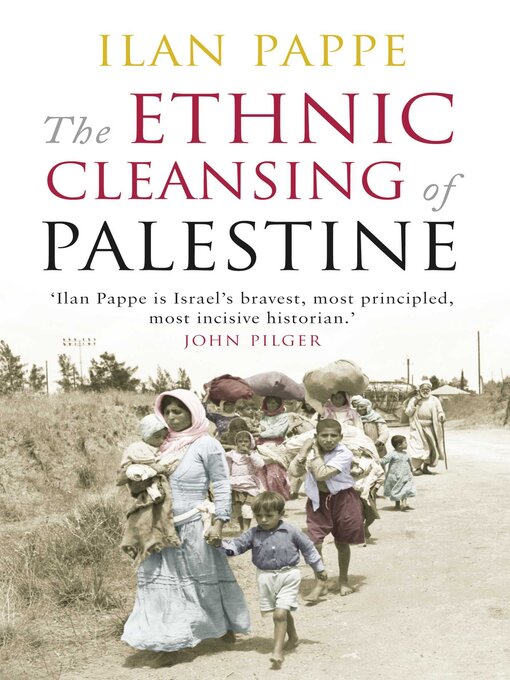 Why I checked it out: When news broke out last October about militant Palestinian resistance group Hamas’ attack against Israel, I struggled to contextualize the event. I caught bits and pieces of history from broadcast clips and articles, but had huge gaps in understanding to fill. I decided to start by reading one of Jewish Israeli historian Ilan Pappé’s many works on Palestine.
Why I checked it out: When news broke out last October about militant Palestinian resistance group Hamas’ attack against Israel, I struggled to contextualize the event. I caught bits and pieces of history from broadcast clips and articles, but had huge gaps in understanding to fill. I decided to start by reading one of Jewish Israeli historian Ilan Pappé’s many works on Palestine.
While surveying reviews and coverage of “The Ethnic Cleansing of Palestine,” I found that it is regarded as a courageously truthful book by many readers and historians, though it seems that supporters of the Israeli state tend to consider it an unfair diatribe (There does exist a more lukewarm reception in between.). The book’s undeniable influence on popular discourse about Palestine sparked my interest.
What stuck: Pappé starts by defining ethnic cleansing in light of international law, then moves into an examination of Israel’s conception, highlighting the viewpoints and directives of early Israeli politicians to illustrate the origins and goals of Zionism. It was illuminating to read quotes attributed to David Ben-Gurion, Israel’s first prime minister, which call candidly for the alienation of Palestinian people from the land on which they lived and labored in the name of establishing a Jewish ethnostate.
Pappé’s mission is simple: “This book is written with the deep conviction that the ethnic cleansing of Palestine must become rooted in our memory and consciousness as a crime against humanity.”
Why I returned it: At the end of the three-week checkout period, I was still moving at a snail’s pace… and someone had it on hold. It was time to release the book back into the law of circulation.
Recommended for: Anyone seeking to build up vocabulary and context. Anyone interested in excavating their own opinions.
“A None’s Story: Seeking Meaning Inside Christianity, Judaism, Buddhism, and Islam” by Corinna Nicolaou
Why I checked it out: This one was easy. While browsing books tagged “religion,” I came across an author with whom I share a name (phonetically speaking) and a spiritual soupiness. The title refers to those who select “none” when responding to surveys about religious affiliation.
The title refers to those who select “none” when responding to surveys about religious affiliation.
Nicolaou, a “none” herself, finds that most of these respondents are not without faith; instead, tending quietly to relationships with God in ways that they prefer not to define by survey options. This book is the story of how Nicolao ventured methodically into places of worship to see if she could find what she was missing, if anything, without religion.
What stuck: I appreciated how Nicolaou captures the emotions of her explorations. Walking into a religious service as a stranger can bring up feelings of unease and inadequacy while also stirring up wonder, longing and other unnamable emotions. There can be tension between the desire and hesitation to give yourself over fully to the experience — or, what you think the experience is supposed to be.
Nicolaou writes about her encounters with religion with a critical eye and tender heart. When’s the last time you entered a room, religious or not, of which you had no knowledge of the people or customs within? Nicolaou’s story feels like a reminder that it is okay to be completely new to something ancient.
Why I returned it: For me, Nicolau’s story was taxing to read — getting oriented to a new religion is a rigorous task for the soul. After reading about Christianity and Judaism, I decided to take a break in order to return with a more settled mind for the chapters on Buddhism and Islam.
Recommended for: The “none”s of the world. Anyone who is distant from, and curious about, the world of organized religion.
“You Better Be Lightning” by Andrea Gibson
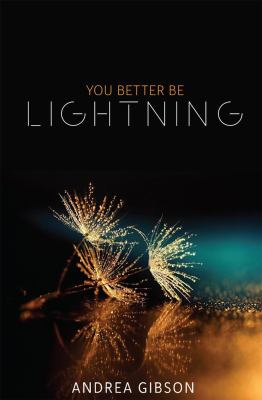 Why I checked it out: I gifted this poetry collection to a friend for their birthday. I was encouraged by the gorgeous cover and by the publisher, Button Poetry, whose YouTube channel of spoken word performances I had always considered a precious corner of the Internet. The friend told me later how much they liked it, so it seemed only right that I get to know “You Better Be Lightning” myself.
Why I checked it out: I gifted this poetry collection to a friend for their birthday. I was encouraged by the gorgeous cover and by the publisher, Button Poetry, whose YouTube channel of spoken word performances I had always considered a precious corner of the Internet. The friend told me later how much they liked it, so it seemed only right that I get to know “You Better Be Lightning” myself.
What stuck: This poem, entitled “Wellness Check”: “In any moment, / on any given day, / I can measure / my wellness / by this question: / Is my attention on loving, / or is my attention on / who isn’t loving me?”
Gibson’s background in slam poetry animates their written words — I can almost hear the mic drop that follows this poem. Some of the pieces are sticky note-sized offerings like “Wellness Check,” affirmations to be whispered and repeated to oneself. Some of them are longer, like you’re listening to someone tell you a story. Gibson’s work, charged with a politics of love and liberation, strikes and lights up the heart.
Why I returned it: ”Wellness Check” satiated me — It was what I needed from this book the first time around. I’m sure next time it will be something different.
Recommended for: Anyone looking to love themselves better, and the world. Anyone who is drawn to queer, heartfelt, truth-telling voices.
“One Last Word” by Suzanne Park
Why I checked it out: After a couple months of reading mostly nonfiction, I wanted something dreamy. It had been a while since I read any romance, and I was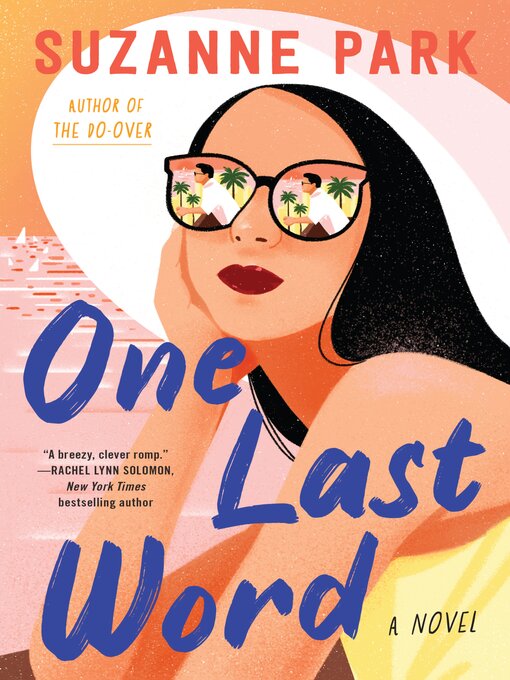 happy to spot one by a Korean American author (Happy Asian American and Pacific Islander Heritage month!), Suzanne Park.
happy to spot one by a Korean American author (Happy Asian American and Pacific Islander Heritage month!), Suzanne Park.
What stuck: Sara Chae is an easy protagonist to love. She’s chronically underestimated, prone to embarrassment, yet never stops advocating for herself. Park puts Sara in impossible situations from which she continuously emerges, soul intact — no small feat, considering the merciless nature of the Silicon Valley tech scene in which she is trying to forge her career.
As for the romance itself, I wasn’t deeply moved by Harry Shim. The relationships between Sara and her younger sister, and her ex-best friend were more compelling to me. But I appreciated Harry’s sweetness, sincerity and commitment to helping Sara shine.
Why I returned it: My reading slowed down once the happy ending was in sight. Once it became clear that everything was going to be okay, I returned to my other books, in which things were not as okay (a questionable impulse, perhaps).
Recommended for: Anyone who thinks romance novels aren’t for them. You might be surprised, like I was! The genre has become a beacon of representation, and a source of rich stories that offer sweet escape without denying bitter realities.

